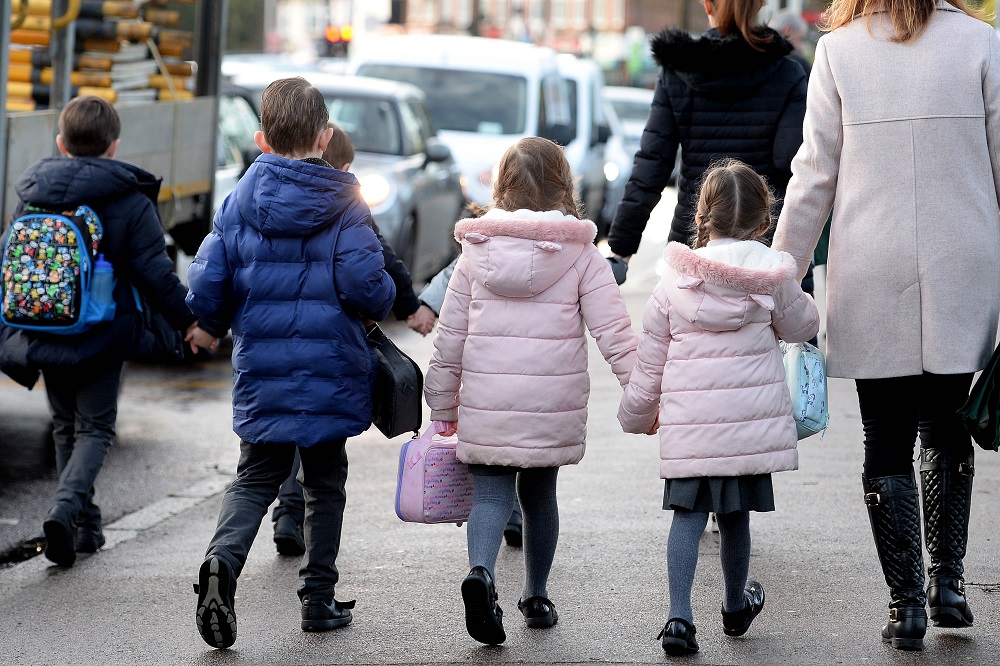2,700 children could lose free transport provision following consultation

Anthony Lewis LDRS Reporter
A consultation on plans to change eligible distances for free school transport could see around 2,700 pupils no longer having access to this service.
Rhondda Cynon Taf pupils could see a change to eligible distances for free transport for mainstream primary, secondary and college pupils which would bring them in line with the statutory distance requirements, the council said.
Under the proposals, primary pupils who live two miles or further from their nearest suitable school would continue to receive free transport, with the current distance being 1.5 miles.
Mainstream secondary and college pupils who live three miles or further from their nearest suitable school would continue to receive free transport, with the current distance being two miles.
Increased cost in provision
Under the proposal, allowing a pupil to select their nearest suitable school in accordance with choice of English or Welsh-medium language or preferred religious denomination would continue, as would providing pre-compulsory school age transport and post-16 transport.
The discretionary elements of Additional Learning Needs (ALN) transport would not change, the council said.
The council said it delivers the largest operation of its kind in Wales in a “generous provision” where 9,000 pupils receive free transport on a discretionary basis – beyond the statutory level set out in the Welsh Government’s learner travel measure.
The council added that over the last eight years the council’s home to school transport costs have increased from £8m in 2015 to more than £15m for the 2023/24 financial year.
Paul Mee, the council’s chief executive, said: “Home to school transport costs have almost doubled since 2015, with many councils having already altered their eligibility criteria. Welsh Government’s current guidance has been in place since 2014, and for almost 10 years we’ve provided free transport to around 9,000 pupils.”
He continued: “The preferred option would align our policy with the learner travel measure for mainstream primary and secondary pupils – while this revised policy would also apply to Welsh, special and faith school pupils, as well as post-16 learners, where there is no statutory duty requiring us to provide transport. As a council we would continue to provide a significant level of home to school transport provision beyond what we are legally required to do.”
Rhondda Cynon Taf council is currently facing a budget gap of £35m next year and £85m over the next three years and this proposal would result in savings of £2.5m per year from 2026/27 financial year with the part-year savings for 2025/26 being £1.4m.
Congestion
Councillor Karen Morgan, leader of the Plaid Cymru group, said if the proposal goes ahead it is going to cause “significant levels of stress” to pupils and families.
According to Ms Morgan, the families of around 2,750 pupils will need to find the money for public transport which may be unavailable or unsuitable, or they will be faced with no option but to drive to school, adding to the congestion on roads and RCT’s carbon footprint.
She mentioned the drop off in attendance at Welsh schools and said sadly she could see an increase in the number of parents facing court action and a massive impact on education and attainment.
She urged the council to consider the impact on child poverty, the Welsh language and safe routes to school.
Support our Nation today
For the price of a cup of coffee a month you can help us create an independent, not-for-profit, national news service for the people of Wales, by the people of Wales.






So running out of money to do anything above the legal minimum.
13 years of cuts to council funding imposed by Westminster is still taking its toll.
Punish the children for there not being enough schools in a 1.5 mile radius?
If the government funded universal free public transport to those aged 25 and under (which I am very much in favour of despite being far older to benefit personally) then this wouldn’t be an issue and there would be additional benefits with less cars on the road.